The Woman Unveiling Poland's Mysteries: "I Didn't Know My Parents Were in the Holocaust"
After years of silence from her parents, who survived the Holocaust, Lily Haber decided to travel to Poland and discover its history firsthand. For the past 20 years, she has returned repeatedly, fighting for Jewish memory, uncovering emotional stories, and documenting the past.
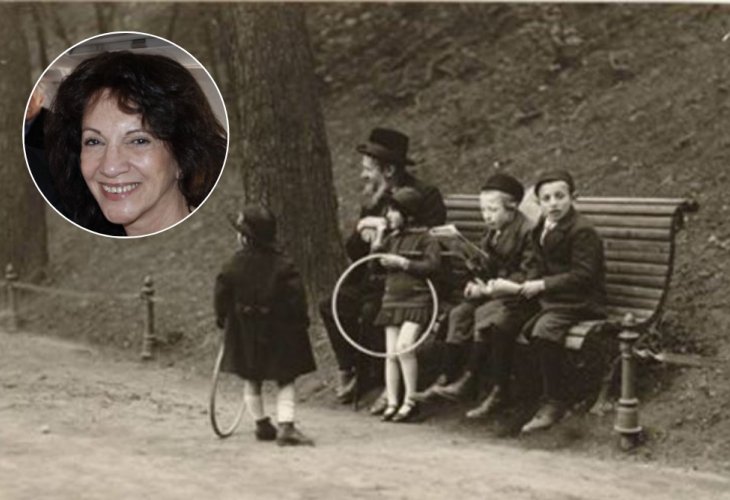 The 1930s in Planti, in the circle: Lily Haber
The 1930s in Planti, in the circle: Lily HaberLily Haber resides in Israel, but for the past 20 years she has frequently traveled between Israel and Poland. "Even when I'm in Israel, I think about Poland and breathe it," she notes, "or more precisely, the Jewish life that once existed there."
Lily was born in post-war Poland to parents who survived the death camps. Amazingly, she, who is so connected to what happened in Poland, only learned very late in life that her parents were Holocaust survivors.
"Perhaps it sounds bizarre," she says, "but I immigrated to Israel with my parents in 1950 as a two-year-old child. My parents were among those survivors who spoke nothing of their past. The media was not as developed as it is today and there was no way to stay updated with news. So, despite being born in Poland and being in the first circle to meet survivors, I knew nothing about the Holocaust. The first time I ever heard about it was in ninth grade during the Eichmann trial. Even then, it was theoretical to me – like the Crusades or ancient Rome. I knew my parents came from Poland, but I never understood the significance, and they never bothered to tell."
Kaddish at Grandma's Grave
In 1987, when Lily was married with three children, her eldest in 11th grade, her father found an advertisement in a newspaper about a group of first and second generation Holocaust survivors traveling to Poland. "These were days when Poland was still communist, so the flight and stay were quite complicated," Lily recalls, "yet my father decided to take me and my sister, to 'show' the Polish he had survived and even started a family. We flew to Poland for ten days, and looking back, I can say those were the ten days that changed my life. It was the first time Poland became more than just something theoretical, it became a part of my personal history, a part of my life. But the most emotional moment was when we reached Krakow, and my parents started to look excited. We wandered around for a whole day, and it turned out my parents remembered everything – addresses, places, names... nothing was forgotten over the years."
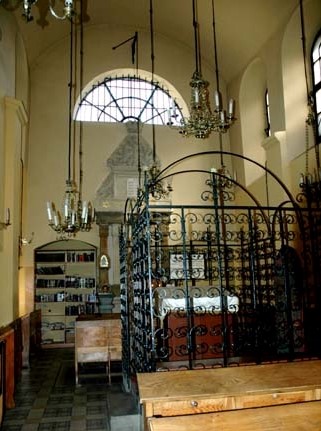
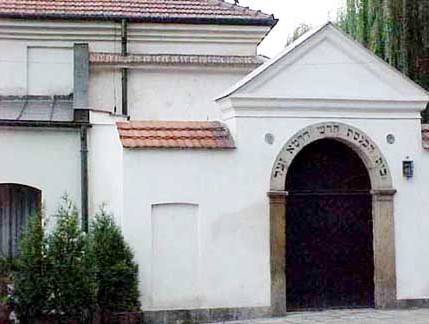
"One day we arrived at the cemetery in Krakow and found my grandma's grave – my father's mother, who died before the war. I had never heard about my grandmother, and suddenly I saw her grave. This is the most emotional picture etched in my memory – more than my children's births or their weddings... the image of my father standing and reciting Kaddish at my grandma's grave."
"We also visited the concentration camp where Schindler's list was kept, which saved my father. Then I saw my father break down – he simply couldn't understand how a place that was once bustling with thousands of prisoners was now completely empty, and even green. It was inconceivable for him. He kept saying: 'There's nothing here, there's nothing here.'"
Lily returned from that trip with a thick photo album, which she didn't leave for two years. "Although my father shared a little, he continued to hide a lot and we knew almost nothing about what they went through. My mother preferred to stay silent, and we couldn't get anything out of her. Around the year 2000, my parents passed away, and then I suddenly realized I knew almost nothing about my family's history, and I had no one to ask. At this point, I delved deeply into researching Poland's heritage, started studying independently about Poland, Jewish heritage, pre-war Jewish life, and the Holocaust. I became interested in all of Poland, but for me, Krakow was the highlight, and most of the research was done on it."
As mentioned, Lily has been involved in this field for 20 years, but during the COVID period, she took her research a step further. "I used the free time to publish a book with more than 200 names of prayer houses that were in Krakow. For some, I reached maximum information – descriptions of their appearance, names of the gabbaim, and even names of regular congregants. Incidentally, in the book, I also noted the differences that existed at that time between a prayer house and a shtiebel, while today we use one name – 'synagogue' for all places of worship." Lily mentions she invested many hours in this, but it's just a small part of what she does.
Small Communities, Severe Assimilation
What is your goal in collecting all this material?
"Poland intrigues me," Lily replies simply, "but in this case, it's not just curiosity, but much more. It's a deep emotional connection that I can't explain. I feel part of that world, I'm really connected to it, and when I'm in Israel, I often find myself missing Poland, or more precisely, Polish Jewry."
Another aspect of her work is a monthly newsletter for Krakow expats. "I publish stories that happened before the Holocaust, during, or after it, all in Krakow, with a clear understanding that if there's no one to ensure continuity, then no one will remember. I send the newsletter to 1,200 postal addresses, mostly older people without emails or printers, and another 2,000 email addresses worldwide and in Israel. I receive a lot of feedback from Krakow expats, some Holocaust survivors, and others from subsequent generations. Sometimes they add and update me, and thus my knowledge grows and expands. Recently, someone abroad sent me a picture of her 95-year-old mother sitting with her morning coffee reading the newsletter I sent. Seeing such pictures shows me that the effort is worth it."
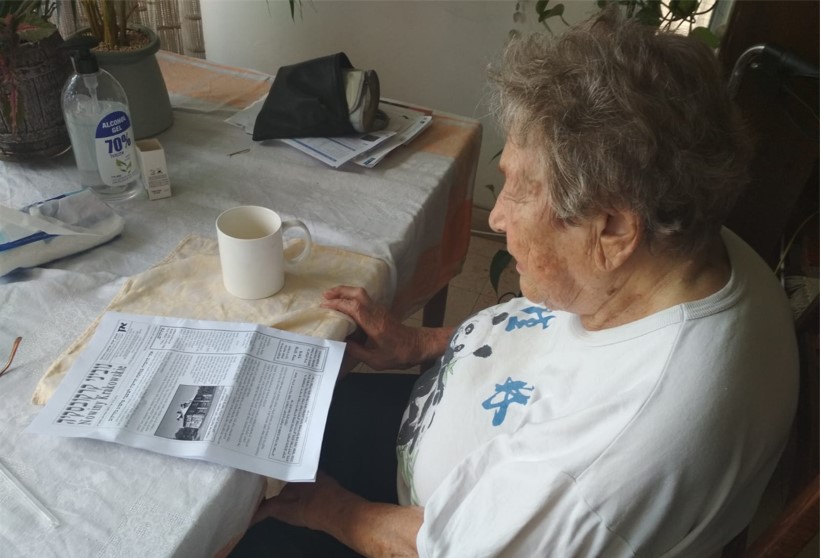 A 95-year-old Holocaust survivor reading the organization's monthly newsletter
A 95-year-old Holocaust survivor reading the organization's monthly newsletterWhat is the current state of Jews in Poland, and what do Jewish communities look like?
"In Poland, unlike elsewhere in Europe, there are hardly any Jewish communities. It is estimated that there are between 5,000 to 10,000 Jews nationwide. But if we talk about Israel's remnants, then there are tens of thousands, because after the Holocaust there was massive assimilation, and many Jews in Poland married non-Jews. Even the wife of the current Polish president is the granddaughter of a Jew.
"One of my Polish acquaintances once told me that she salted meat because her grandmother did so. We both understood that perhaps the grandmother was Jewish, but it could also be that she knew Jews and learned from them... These are stories you hear endlessly in Poland, which is full of Jewish roots and hard to identify who truly has a connection to Judaism."
Lily is also active as a member of the Krakow Museums Council. "This is important work to me," she states, "I'm very unique on the team, as everyone else is Polish, professors, and important doctors, but I am sure there's a significant contribution from my presence there. Among other things, we deal with memorial sites and documenting events that occurred. Often, we fight against residents who don’t want to memorialize or document, feeling it comes at the expense of their land or convenience."
By the way, Lily notes that until about 15 years ago, she didn't speak a word of Polish, but today she speaks fluently and often has fascinating conversations with citizens and government officials.
Is there anti-Semitism in Poland?
"I don't want to generalize, as it certainly varies. Generally, the less educated layers, those living in villages and the east, are simple people and farmers. Most are heavily influenced by the church and believe that Jews killed Jesus. In contrast, city residents, belonging to the educated groups, often favor Israel and show interest in the Israeli story and our Middle East issues. Sometimes they're even saddened by our lack of peace. Among them, there are individuals distinctly interested in the Jewish people and even volunteer in Jewish cemeteries on Sundays, cleaning and caring for signage. They are also very curious about Jewish holidays and want to hear about them. This is quite unusual because they don't equally learn about other cultures.
"By the way, in recent years you can see that over 40 cities and towns in Poland hold a Jewish cultural festival once a year, with Jewish cooking workshops, Jewish music, and klezmer concerts. Many people attend these events, claiming openly that at home, they ate such food or sang such songs. As I mentioned – in most cases, they're not really Jews, but families who assimilated or those who lived close to Jews and learned their customs."
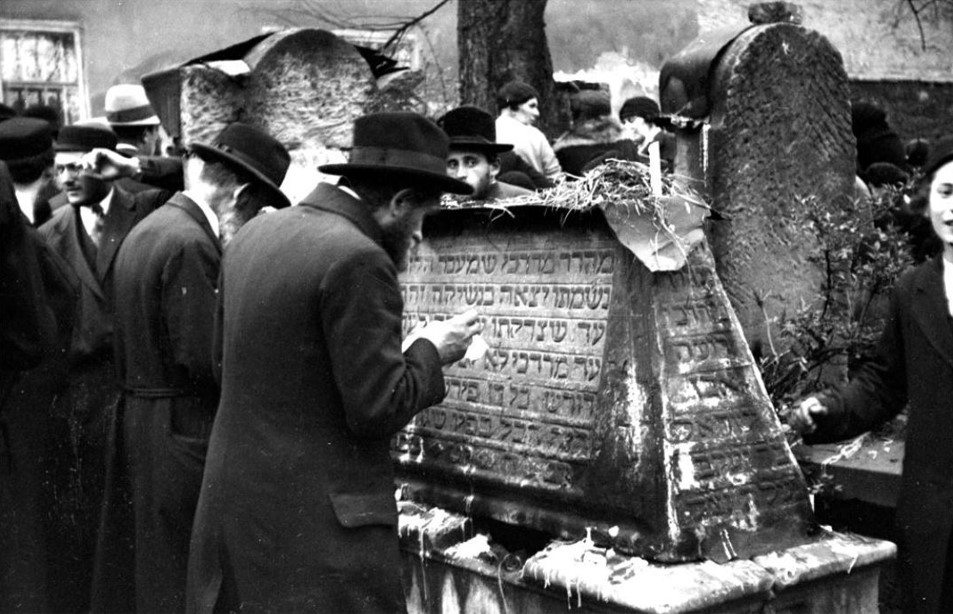 At the grave of the RAMA
At the grave of the RAMA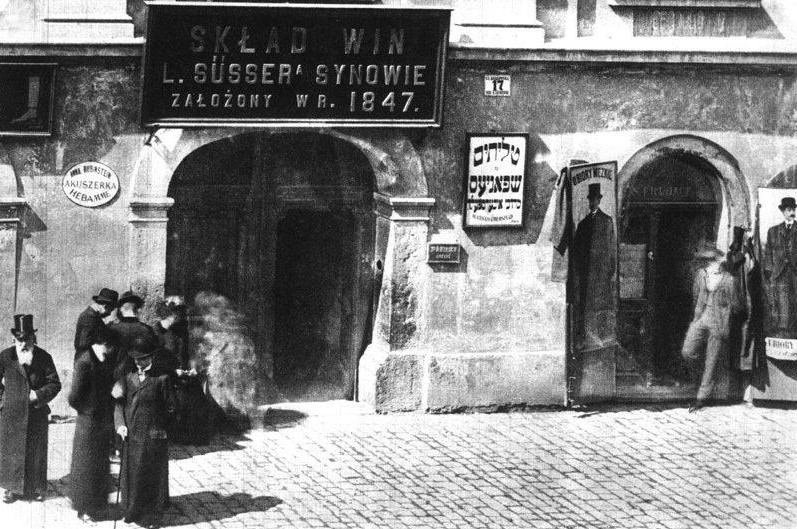 Krakowska Street
Krakowska Street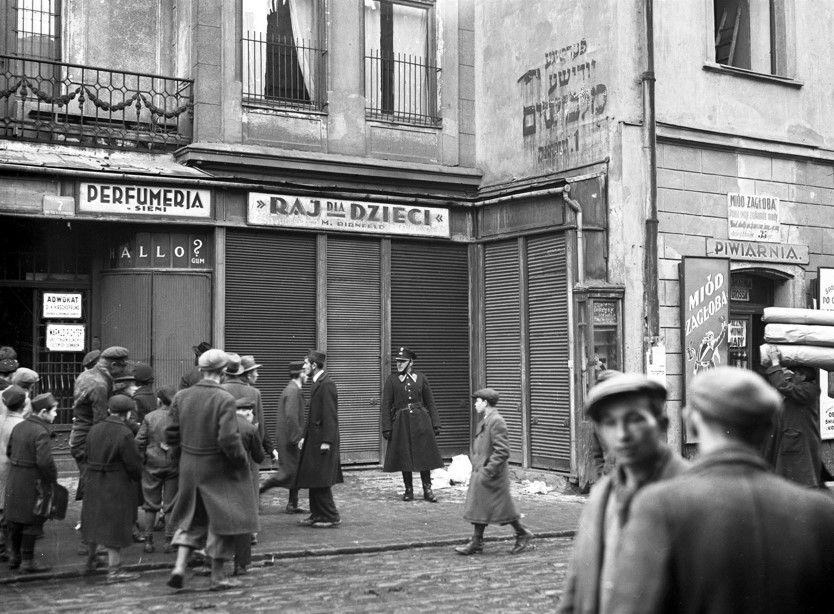 Krakowska Street
Krakowska StreetAmbassador of Israel
Lately it was mentioned that Israeli youth tours in Poland might stop. What is the reason for that?
"There's a certain tourism crisis," Lily explains, "but when discussing tourism, it's crucial to remember that it's not necessarily about to be harmed, and actually, there are currently three types of tourists coming to Poland – there are the Chassidim who often come to pray in cemeteries, especially to Rabbi Elimelech of Lizhensk, there are Israelis who come for shopping, as they do in many other countries worldwide, and there are also youth tours. During the COVID period, no tours occurred, and now there's talk about them not being renewed. Personally, I think it's only positive. Age 16 is very early to be exposed to such things. It's an age that's not capable or mature enough to learn about the horror. Many studies compared students who went to Poland to older adults and found that as a person is older and has children and family, their ability to comprehend grows. A 16-year-old traveling with friends on a bus for nine hours, with no one stopping them from being rowdy, finds it hard, eventually, to visit a cemetery and feel connected. I'm not saying not to learn about the Holocaust in high school, but there are plenty of ways to do it in Israel, without needing long-distance trips."
Another reason why Poland recently made headlines is due to the abandoned Jewish property. Here, Lily wants to clarify: "Across Poland, there are two types of property – there's communal property, like cemeteries, mikvahs, study halls, etc. These assets belong to the Jewish community, and the Polish government indeed recognizes this and slowly returns the property itself or equivalents – money or substitute property.
"Additionally, there is private property – in such cases, when proving ownership over the asset, one must approach a court, and if successful, they receive it. But nowadays, it's almost impossible because there are many descendants of each heir, and splitting the inheritance among them results in very low sums, not worth the effort. Furthermore, there's property nationalized by Communism, and currently, a battle with Poland revolves around this. The Polish government claims that former owners who haven't claimed their property are now losing their opportunity, and now the property returns to the state. Contrarily, Minister Yair Lapid has cried out, claiming there should be no limitation on claiming Jewish property.
"Moreover, there's a lot of property defined as 'heirless property.' According to Polish law, such property goes to the state, and this too has drawn outcry from senior officials in Israel. They argue that the property entirely belongs to Jewish communities and should be returned to them. Personally, I believe meaningful dialogue is possible, and about two months ago, I traveled to Poland to meet the Minister of Heritage and Culture. I proposed an original idea to close the conflict amicably, and it's now being examined for feasibility."
Are you also in contact with the Israeli government?
"Of course. I've written a few times to Minister Lapid and held conversations with many senior officials from the Foreign Ministry, with members of the Knesset, and with ministers. On the surface, it seems difficult to achieve dialogue between the governments of Poland and Israel, but I believe that if we act wisely, we can achieve significant progress. This is our mission for those who were and are no longer, and that's what I'm striving for these days."

